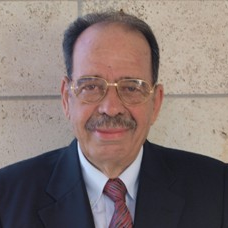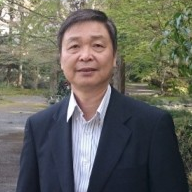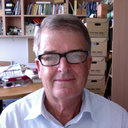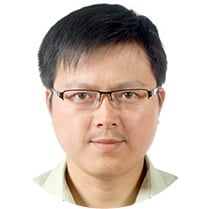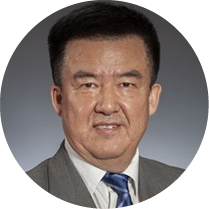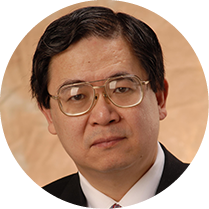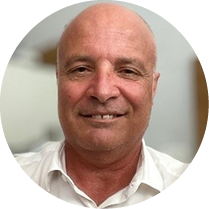
Journal Menu
► ▼ Journal Menu-
- Water Home
- Aims & Scope
- Editorial Board
- Reviewer Board
- Topical Advisory Panel
- Instructions for Authors
- Special Issues
- Topics
- Sections & Collections
- Article Processing Charge
- Indexing & Archiving
- Editor’s Choice Articles
- Most Cited & Viewed
- Journal Statistics
- Journal History
- Journal Awards
- Society Collaborations
- Conferences
- Editorial Office
Journal Browser
► ▼ Journal BrowserNeed Help?
Announcements
23 September 2021
Welcoming New Advisory Board Members of Water
We are pleased to announce that the Advisory Board of Water (ISSN 2073-4441) has been set and five distinguished scholars have been appointed.
|
|
Name: Dr. Andreas N. Angelakis Affiliation: HAO-Demeter, Agricultural Research Institution of Crete, 71300 Iraklion and Union of Water Supply and Sewerage Enterprises, 41222 Larissa, Greece |
Dr. Andreas N. Angelakis is a Water Resources Engineer at the National Agric. Res. Foundation, Institute of Iraklion, Greece and Technical Consultant of Hellenic Union of Municipal Enterprises for Water Supply and Sewerage.
His scientific fields of interest are: environmental engineering; aquatic wastewater management systems; water and wastewater management for small and decentralized systems; treated wastewater renovation and reuse; and water and wastewater technologies in ancient civilizations. He is the author/co-author of over 450 publications. He has over 3000 SCH citations and an i10-index of 58. He has participated in the organizing/scientific committee of more than 120 international symposia and/or conferences in the last 25 years.
|
|
Name: Prof. Dr. Fi-John Chang Affiliation: Department of Bioenvironmental Systems Engineering, National Taiwan University, Taipei, Taiwan |
Prof. Dr. Fi-John Chang currently works at the Department of Bioenvironmental Systems Engineering at the National Taiwan University. He does research in hydrology, water resources management, ecological engineering, and environmental engineering by using artificial intelligence techniques (ANNs, evolution algorithms, fuzzy logical, machine learning. He is Associate Editor of Journal of Hydrology, Hydrological Science Journal, and Water.
|
|
Name: Prof. Dr. Dionysios (Dion) D. Dionysiou Affiliation: Environmental Engineering and Science Program, Department of Chemical and Environmental Engineering (ChEE), University of Cincinnati, Cincinnati, OH, USA |
Prof. Dr. Dionysiou performs research in the fields of (i) advanced oxidation technologies for water treatment, (ii) drinking water treatment and purification, (iii) physicochemical phenomena on particle-water interfaces, (iv) transition-metal oxidation and reverse electron transfer reactions, (v) the use of ionic liquids in environmental applications, (vi) destruction of biological toxins in water, and (vii) environmental nanotechnology (fundamental, fate, transport, and applications of nanomaterials). At the University of Cincinnati, Professor Dionysiou teaches graduate courses in the fields of (i) Advanced Unit Operations for the Treatment of Drinking Water and Wastewater, (ii) Physical-Chemical Processes for Water Quality Control, and (iii) Advanced Oxidation Technologies and Nanotechnologies. He also teaches a graduate level laboratory course on Unit Operations and Process Monitoring for the Treatment of Polluted Water and Air and an undergraduate course in Environmental Engineering Fundamentals and Process Design.
|
|
Name: Dr. David Dunkerley Affiliation: School of Earth, Atmosphere and Environment, 9 Rainforest Walk, Clayton Campus, Monash University, Victoria 3800, Australia |
Dr. David Dunkerley currently works at the School of Earth, Atmosphere and Environment, at Monash University. Dr. Dunkerley does research in rainfall; rainfall intensity profiles; infiltration; runoff and overland flow production; ephemeral streamflow; ecohydrology; ecohydrology of arid environments; hydraulics of shallow overland flow; flow speeds in overland flow; and instrumentation for surface water hydrology.
|
|
Name: Prof. Dr. Fernando António Leal Pacheco Affiliation: Department of Geology, Chemistry Research Centre, University of Trás-os-Montes e Alto Douro, Quinta de Prados, 5001–801 Vila Real, Portugal |
Prof. Dr. Fernando A. L. Pacheco was born in 1967 in Mozambique. He holds a B.Sc. in Engineering Geology (1991) from the Coimbra University (Portugal), with an ERASMUS student specialization in Geochemistry (1991) from the Utrecht University (The Netherlands); an M.Sc. in Geosciences, with a specialization in Environment and Territory Management (1996) from the Coimbra University (Portugal); a Ph.D. degree in Hydrogeology (2001) from the Trás-os-Montes and Alto Douro University – UTAD (Portugal); and an Habilitation title in Environmental Geochemistry (2011) from the UTAD. He is currently an Associate Professor of Hydrogeology and Environmental Geochemistry at the UTAD. He was the Head of Geology Department between 2013 and 2021 and a member of Life and Environment School of UTAD between 2017 and 2021. He joined the Vila Real Chemistry Research Centre in 2005, where he still develops most of his research, but he also collaborates with various Brazilian research groups, namely the POLUS—Land Use Policy group from the São Paulo State University (UNESP). He has published over 100 research papers in international journals, co-authored by nearly 120 scientists from various countries (Portugal, the Netherlands, Brazil, Germany, Hungary, Italy and Spain), and participated in many and integrated the organizing and scientific committees of many national and international conferences and seminars.
We wish the new Advisory Board Members every success in both their research and the development of the journal.
Further details about the Advisory Board can be found at: https://www.mdpi.com/journal/water/editors#advisoryboard.
22 September 2021
MDPI Joins SDG Publishers Compact

UN's 17 Sustainable Development Goals (SDGs) are the blueprint to achieve a better and more sustainable future for all. In 2020 the SDG Publishers Compact was launched, aimed to inspire publishers and accelerate progress to achieve the 17 goals by 2030. Members of the programme are committed to support the publication of materials that will promote and inspire actions towards SDGs.
MDPI is an eager advocate of SDGs and has already been supporting the programme by creating Special Issues and publishing a series of books on SDGs prior to joining the Compact in 2021. MDPI's Sustainability Foundation initiated the World Sustainability Awards in 2016. We fully support UN's goals to promote sustainable actions that make the world a better place for all and, as part of its commitment, we will focus our actions on SDG10: Reduced Inequalities whilst promoting all 17 SDGs. For more details, please visit the programme’s website: https://www.un.org/sustainabledevelopment/sdg-publishers-compact/.
Joining this initiative was a unanimous decision. MDPI has in its core values the dissemination of science for all, breaking the wall between research access and under-represented members of the scientific community and the general population. To support this initiative further and continue to support under-represented scientists, MDPI will take a series of actions that will be announced once ready.
The first action MDPI takes is to nominate Dr. Liliane Auwerter as the coordinator of the programme. Dr. Auwerter studied Environmental Process Technology (UTFPR, Brazil), obtained her MSc degree in Water and Environmental Engineering (University of Surrey, UK) and in 2020 completed her PhD in self-healing low-friction materials for water transport (Imperial College London, UK), always focusing on diverse scientific projects that would potentially bring sustainability to industrial processes. As a student in Brazil, she engaged in volunteering activities focused on environmental education and took part in the Millennial Development Goals meetings held at the university.
For more information, please contact:
Dr. Liliane Auwerter
Scientific Officer
liliane.auwerter@mdpi.com
13 September 2021
Hydrobiology Has Established Companionship with Its Sister Journals Life and Water

We are pleased to announce that the new journal Hydrobiology (ISSN 2673-9917) has established companionship with its sister journals Life (ISSN 2075-1729) and Water (ISSN 2073-4441).
Hydrobiology is an international, peer-reviewed, open access journal related to the science of life and life processes in water. It publishes regular research articles, reviews, and short notes. Our aim is to encourage scientists to publish their experimental and theoretical results in as much detail as possible. There is no restriction on the length of the papers. The full experimental details must be provided so that results can be reproduced.
We welcome cross-disciplinary research at the molecular, organism, and ecosystem level on all aspects of aquatic ecosystems and biodiversity conservation ranging from freshwater fauna and flora to marine habitats. For details on the background and scope of this journal, please click on this link: https://www.mdpi.com/journal/hydrobiology/about.
We offer a full waiver on article processing charges for papers submitted before 15 November 2021. Manuscripts are peer-reviewed and a first decision provided to authors approximately 15 days after submission; acceptance to publication is undertaken in 3 days (median values for MDPI journals in the second half of 2020). If accepted after peer review, your paper will be published in open access format.
Manuscripts can be submitted via the journal’s online submission system at: https://susy.mdpi.com/user/manuscripts/upload?journal=hydrobiology.
Read Publisher’s Note to Launch Hydrobiology here.
We cordially invite you to consider Hydrobiology as the platform for publishing your work.
Hydrobiology Editorial Office
hydrobiology@mdpi.com
3 September 2021
Meet Us Online at the 6th International Electronic Conference on Water Sciences (ECWS 2021), 15–30 November 2021

We are pleased to welcome you to the 6th International Electronic Conference on Water Sciences (ECWS-6) addressing the impacts of climate change and human interventions on coastal zones. The conference will be held online and promoted and facilitated by the open-access MDPI Journal Water.
In the last few years, five International Electronic Conferences on Water Sciences (ECWS-1, ECWS-2, ECW-3, ECWS-4 and ECWS-5) have addressed a variety of important water-related aspects. A sixth conference focusing on the impact of climate change and human interventions on coastal zones in the Anthropocene is considered timely. The Earth’s most recent geologic time period is a complex mix of climatic changes and human interventions. Overwhelming regional as well as global evidence exists that atmospheric, geologic, hydrologic, biospheric, and other earth-system compartments and processes are now altered by a wide diversity of anthropogenic activities. Different aspects of the interactions between water and the coastal geo-, bio- and ecosphere in the context of global changes will be considered in this conference.
Date: 15–30 November 2021
Webinar Website: https://ecws-6.sciforum.net/
|
Conference Chair |
|
|
|
Prof. Dr. Marcel Stive |
|
Conference Committee |
|
|
|
Dr. Fangxin Fang |
|
|
Prof. Dr. José A. Jiménez |
|
|
Dr. Laurens M. Bouwer |
|
|
Dr. Maurizio Polemio |
|
|
Dr. Nicolò Colombani |
|
|
Prof. Dr. Yongping Chen |
|
|
Prof. Dr. Zhi-jun Dai |
For any questions about the webinar, please send an email to ecws@mdpi.com.
11 August 2021
Water | Three New Sections Established
In order to specifically develop different research areas and attract more high-quality papers, we are pleased to announce the addition of the following three new Sections to Water, which are intended to cover all the disciplines of the field of water science:
- “Ecohydrology”;
- “Water-Energy Nexus”;
- “New Sensors, New Technologies and Machine Learning in Water Sciences”.
Introduction of Section Editors-in-Chief:
|
|
Name: Prof. Dr. Yaning Chen |
|
|
Name: Prof. Dr. Gordon Huang |
|
|
Name: Dr. Frédéric Frappart |
We warmly welcome these three scholars in the role of Section Editors-in-Chief, and we look forward to them leading Water to achieve more milestones.
3 August 2021
Announcement on Japanese Consumption Tax (JCT)
This serves to announce to our valued authors based in Japan that value-added tax, or consumption tax will now be imposed on article processing fees and other service fees for all papers submitted, or resubmitted (assigned new paper IDs), effective from 15 August 2021. The change is in accordance with the Japanese "Act for Partial Revision of the Income Tax Act and Other Acts" (Act No. 9 of 2015), which includes a revision of consumption taxation on cross-border supplies of services such as digital content distribution.
For additional information from the National Tax Agency please see here ("Cross-border supplies of electronic services").
Contact: Setsuko Nishihara, MDPI Tokyo
27 July 2021
Water 3rd Webinar | Climate Change and Water Resources: Evidence, Impacts, Adaptation

Climate variations have always impacted water resources. Global concern is that the near-future rate of climate change may reach levels of which the impact is beyond our capacity to respond. Have we learned anything from the past? Is it possible to respond and take adaptation and mitigation measures? The webinar will address these issues, although in a focused sense. Three contributions will be presented: (1) historical climate change and adaptation technology; (2) water availability in southern Europe and the measures to be undertaken; (3) climate change impacts on droughts and water resources in the Mediterranean area and appropriate water resources management.
Date: 7 October 2021
Time: 4:00pm CEST | 10:00am EDT | 10:00pm CST
Webinar ID: 864 4451 3181
Webinar website: https://water-3.sciforum.net/
Register for free here:
Program
|
Speaker/Presentation |
Time in CEST/CET |
|
Prof. Dr. Athanasios Loukas |
4:00–4:10 pm |
|
Prof. Dr. Demetris Koutsoyiannis |
4:10–4:35 pm |
|
Prof. Dr. Luis Garrote |
4:35–5:00 pm |
|
Prof. Dr. Antonio Cancelliere |
5:00–5:25 pm |
|
Q&A Session |
5:25–6:00 pm |
|
Prof. Dr. Athanasios Loukas |
6:00–6:05 pm |
Chair
|
|
Prof. Dr. Athanasios Loukas Department of Transportation and Hydraulic Engineering, School of Rural and Surveying Engineering, Faculty of Engineering, Aristotle University of Thessaloniki, Thessaloniki, Greece |
Invited Speakers
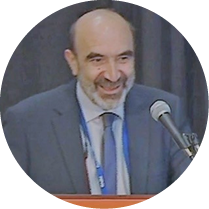 |
Prof. Dr. Demetris Koutsoyiannis Department of Water Resources, School of Civil Engineering, National Technical University of Athens, Athens, Greece |
 |
Prof. Dr. Luis Garrote Department of Civil Engineering: Hydraulics, Energy and Environment, Technical University of Madrid, Spain |
|
|
Prof. Dr. Antonio Cancelliere Dipartimento di Ingegneria Civile e Architettura, Università di Catania, Via S. Sofia 64, 95123 Catania, Italy |
For any questions about the webinar, please send an email to water.webinar@mdpi.com.
30 June 2021
2020 Impact Factors - Released
The 2020 citation metrics have been officially released in the Journal Citation Reports (JCR)!
We are pleased to announce that 85 MDPI journals are included, of which:
- 10 journals received their first impact factor
- 96% of journals increased their impact factor from 2019
- 32 journals (38%) ranked among the top 25% of journals, in at least one category
| Journal | Impact Factor | Rank | Category |
| Cancers | 6.639 | Q1 | • Oncology |
| Cells | 6.600 | Q2 | • Cell Biology |
| Pharmaceutics | 6.321 | Q1 | • Pharmacology & Pharmacy |
| Antioxidants | 6.313 | Q1 | • Food Science & Technology |
| • Biochemistry & Molecular Biology | |||
| • Chemistry, Medicinal | |||
| Biomedicines | 6.081 | Q1 | • Medicine, Research & Experimental |
| • Pharmacology & Pharmacy | |||
| • Biochemistry & Molecular Biology | |||
| International Journal of Molecular Sciences | 5.924 | Q1 | • Biochemistry & Molecular Biology |
| Q2 | • Chemistry, Multidisciplinary | ||
| Pharmaceuticals | 5.863 | Q1 | • Pharmacology & Pharmacy |
| • Chemistry, Medicinal | |||
| Journal of Fungi | 5.816 | Q1 | • Mycology |
| • Microbiology | |||
| Nutrients | 5.719 | Q1 | • Nutrition & Dietetics |
| Biosensors | 5.519 | Q1 | • Chemistry, Analytical |
| • Instruments & Instrumentation | |||
| Q2 | • Nanoscience & Nanotechnology | ||
| Marine Drugs | 5.118 | Q1 | • Chemistry, Medicinal |
| • Pharmacology & Pharmacy | |||
| Biology | 5.079 | Q1 | • Biology |
| Nanomaterials | 5.076 | Q1 | • Physics, Applied |
| Q2 | • Chemistry, Multidisciplinary | ||
| • Materials Science, Multidisciplinary | |||
| • Nanoscience & Nanotechnology | |||
| Viruses | 5.048 | Q2 | • Virology |
| Journal of Personalized Medicine | 4.945 | Q1 | • Medicine, General & Internal |
| • Health Care Sciences & Services | |||
| Metabolites | 4.932 | Q2 | • Biochemistry & Molecular Biology |
| Biomolecules | 4.879 | Q2 | • Biochemistry & Molecular Biology |
| Remote Sensing | 4.848 | Q1 | • Geosciences, Multidisciplinary |
| Q2 | • Remote Sensing | ||
| • Imaging Science & Photographic Technology | |||
| • Environmental Sciences | |||
| Gels * | 4.702 | Q1 | • Polymer Science |
| Antibiotics | 4.639 | Q2 | • Infectious Diseases |
| • Pharmacology & Pharmacy | |||
| Toxins | 4.546 | Q1 | • Toxicology |
| • Food Science & Technology | |||
| Vaccines | 4.422 | Q2 | • Immunology |
| • Medicine, Research & Experimental | |||
| Molecules | 4.412 | Q2 | • Chemistry, Multidisciplinary |
| • Biochemistry & Molecular Biology | |||
| Foods | 4.350 | Q2 | • Food Science & Technology |
| Polymers | 4.329 | Q1 | • Polymer Science |
| Journal of Clinical Medicine | 4.242 | Q1 | • Medicine, General & Internal |
| Toxics | 4.146 | Q2 | • Toxicology |
| • Environmental Sciences | |||
| Catalysts | 4.146 | Q2 | • Chemistry, Physical |
| Microorganisms | 4.128 | Q2 | • Microbiology |
| Membranes | 4.106 | Q1 | • Polymer Science |
| Q2 | • Engineering, Chemical | ||
| • Materials Science, Multidisciplinary | |||
| • Chemistry, Physical | |||
| Genes | 4.096 | Q2 | • Genetics & Heredity |
| Fermentation * | 3.975 | Q2 | • Biotechnology & Applied Microbiology |
| Journal of Cardiovascular Development and Disease * | 3.948 | Q2 | • Cardiac & Cardiovascular Systems |
| Plants | 3.935 | Q1 | • Plant Sciences |
| Life | 3.817 | Q2 | • Biology |
| Diagnostics | 3.706 | Q2 | • Medicine, General & Internal |
| Current Oncology | 3.677 | Q3 | • Oncology |
| Materials | 3.623 | Q1 | • Metallurgy & Metallurgical Engineering |
| Q2 | • Materials Science, Multidisciplinary | ||
| • Chemistry, Physical | |||
| • Physics, Applied | |||
| • Physics, Condensed Matter | |||
| Sensors | 3.576 | Q1 | • Instruments & Instrumentation |
| Q2 | • Chemistry, Analytical | ||
| • Engineering, Electrical & Electronic | |||
| Pathogens | 3.492 | Q2 | • Microbiology |
| Agronomy | 3.417 | Q1 | • Agronomy |
| • Plant Sciences | |||
| Chemosensors | 3.398 | Q2 | • Instruments & Instrumentation |
| • Chemistry, Analytical | |||
| Q3 | • Electrochemistry | ||
| Land | 3.398 | Q2 | • Environmental Studies |
| Brain Sciences | 3.394 | Q3 | • Neurosciences |
| International Journal of Environmental Research and Public Health | 3.390 | Q1 | • Public, Environmental & Occupational Health (SSCI) |
| Q2 | • Public, Environmental & Occupational Health (SCIE) | ||
| • Environmental Sciences (SCIE) | |||
| Tomography | 3.358 | Q2 | • Radiology, Nuclear Medicine & Medical Imaging |
| Fractal and Fractional * | 3.313 | Q1 | • Mathematics, Interdisciplinary Applications |
| Sustainability | 3.251 | Q2 | • Environmental Sciences (SCIE) |
| • Environmental Studies (SSCI) | |||
| Q3 | • Green & Sustainable Science & Technology (SCIE) | ||
| • Green & Sustainable Science & Technology (SSCI) | |||
| Water | 3.103 | Q2 | • Water Resources |
| • Environmental Sciences | |||
| Journal of Theoretical and Applied Electronic Commerce Research | 3.049 | Q3 | • Business |
| Energies | 3.004 | Q3 | • Energy & Fuels |
| Agriculture | 2.925 | Q1 | • Agronomy |
| ISPRS International Journal of Geo-Information | 2.899 | Q2 | • Geography, Physical |
| • Computer Science, Information Systems | |||
| Q3 | • Remote Sensing | ||
| Micromachines | 2.891 | Q2 | • Instruments & Instrumentation |
| • Physics, Applied | |||
| Q3 | • Chemistry, Analytical | ||
| • Nanoscience & Nanotechnology | |||
| Coatings | 2.881 | Q2 | • Materials Science, Coatings & Films |
| • Physics, Applied | |||
| Q3 | • Materials Science, Multidisciplinary | ||
| Children | 2.863 | Q2 | • Pediatrics |
| Processes | 2.847 | Q3 | • Engineering, Chemical |
| Separations | 2.777 | Q3 | • Chemistry, Analytical |
| Insects | 2.769 | Q1 | • Entomology |
| Animals | 2.752 | Q1 | • Agriculture, Dairy & Animal Science |
| • Veterinary Sciences | |||
| Symmetry | 2.713 | Q2 | • Multidisciplinary Sciences |
| Atmosphere | 2.686 | Q3 | • Meteorology & Atmospheric Sciences |
| • Environmental Sciences | |||
| Applied Sciences | 2.679 | Q2 | • Engineering, Multidisciplinary |
| • Physics, Applied | |||
| Q3 | • Chemistry, Multidisciplinary | ||
| • Materials Science, Multidisciplinary | |||
| Photonics | 2.676 | Q2 | • Optics |
| Buildings * | 2.648 | Q2 | • Construction & Building Technology |
| • Engineering, Civil | |||
| Healthcare | 2.645 | Q2 | • Health Policy & Services (SSCI) |
| Q3 | • Health Care Sciences & Services (SCIE) | ||
| Minerals | 2.644 | Q2 | • Mining & Mineral Processing |
| • Mineralogy | |||
| • Geochemistry & Geophysics | |||
| Forests | 2.634 | Q1 | • Forestry |
| Crystals | 2.589 | Q2 | • Crystallography |
| Q3 | • Materials Science, Multidisciplinary | ||
| Entropy | 2.524 | Q2 | • Physics, Multidisciplinary |
| Diversity | 2.465 | Q2 | • Biodiversity Conservation |
| Q3 | • Ecology | ||
| Journal of Marine Science and Engineering | 2.458 | Q2 | • Oceanography |
| • Engineering, Marine | |||
| • Engineering, Ocean | |||
| Medicina | 2.430 | Q2 | • Medicine, General & Internal |
| Machines * | 2.428 | Q2 | • Engineering, Mechanical |
| Q3 | • Engineering, Electrical & Electronic | ||
| Electronics | 2.397 | Q3 | • Engineering, Electrical & Electronic |
| • Computer Science, Information Systems | |||
| • Physics, Applied | |||
| Fishes * | 2.385 | Q2 | • Fisheries |
| • Marine & Freshwater Biology | |||
| Metals | 2.351 | Q2 | • Metallurgy & Metallurgical Engineering |
| Q3 | • Materials Science, Multidisciplinary | ||
| Horticulturae * | 2.331 | Q1 | • Horticulture |
| Veterinary Sciences * | 2.304 | Q1 | • Veterinary Sciences |
| Universe | 2.278 | Q3 | • Physics, Particles & Fields |
| • Astronomy & Astrophysics | |||
| Mathematics | 2.258 | Q1 | • Mathematics |
| Magnetochemistry | 2.193 | Q3 | • Chemistry, Inorganic & Nuclear |
| • Chemistry, Physical | |||
| • Materials Science, Multidisciplinary | |||
| Current Issues in Molecular Biology | 2.081 | Q4 | • Biochemistry & Molecular Biology |
| Actuators | 1.994 | Q3 | • Instruments & Instrumentation |
| • Engineering, Mechanical | |||
| Aerospace * | 1.659 | Q2 | • Engineering, Aerospace |
* Journals given their first Impact Factor in 2021
Source: 2020 Journal Impact Factors, Journal Citation Reports ® (Clarivate, 2021)
24 June 2021
Prof. Dr. Gang Pan Appointed Associate Editor of Water

We are pleased to announce that Prof. Dr. Gang Pan has been appointed as Associate Editor of Water (ISSN 2073-4441). His term started in June 2021.
Dr. Gang Pan is a Full Professor and Ex-Associate Dean of Research for the School of Animal, Rural, and Environmental Sciences. He is now the Director of the Centre of Integrated Water–Energy–Food (iWEF) studies at NTU. Prof. Pan is an environmental, ecological, material, and physical chemist. He pioneers in geoengineering technologies for natural water restoration and eutrophication control, sediment remediation, environmental nanotechnology, surface adsorption, algal biotechnology, and synchrotron techniques. He was awarded the National First Prize of Environmental Science and Technology of China (2009); “Scientists of the Year” (2010, Chinese national annual award); 2014 Excellence in Review Awards (ES&T); the First Prize of “Dayu Award” in 2017 (the highest Chinese national award in hydrology and ecology). He has published over 300 peer-reviewed papers (H-index 51 Google Scholar) and filed over 50 patents. His current research focuses on algal biotechnology and nanobubble technology.
The editorial team warmly welcomes Prof. Dr. Gang Pan as Associate Editor and looks forward to his contribution to the continued success of Water.
For further information on the journal Water, please see here.
22 June 2021
Water Has Received an Increased CiteScore of 3.7

It is our great pleasure to announce that Water (ISSN 2073-4441) has received an increased CiteScore (2020 Scopus data) of 3.7 for the year 2020, which equals the rank of 66/225 (Q2) in "Water Science and Technology" (Environmental Science); 63/224 (Q2) in "Aquatic Science" (Agricultural and Biological Sciences); 125/704 (Q1) in "Geography, Planning and Development" (Social Sciences).
We would like to extend our sincerest gratitude to all the authors, reviewers, and editors who have contributed to the journal and enabled this achievement!



